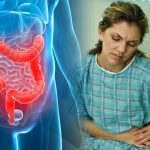
Chronic Kidney Disease (CKD) is a condition where the kidneys are not functioning as well as they should. By the time someone reaches stage 3 CKD, their kidneys can still remove fluids and some waste from the body but are beginning to struggle. To slow down the progression of CKD, it’s vital to manage aspects like blood pressure, glucose levels, and body weight. This management often involves following a specific diet. Below are key dietary guidelines tailored for individuals with stage 3 CKD, expanded with additional insights and grounded in research where relevant.
- Fats
- Caloric Intake
- Phosphorus
- Potassium
- Fluid Retention
- Sodium
- Consistency
- Protein
- Calcium
- Fiber [1]
Fats
For individuals with CKD, particularly those with cardiovascular issues or high cholesterol, the type of fat consumed is critical. Saturated fats and trans fats, often found in processed foods, should be replaced with healthier options like polyunsaturated and monounsaturated fats, available in vegetables, canola, and olive oils. Limiting high-cholesterol food intake is also advisable to support heart health and manage CKD progression.
By selecting healthier fats, individuals not only support their kidney health but also contribute to a healthier heart. These fats help reduce cholesterol levels and improve blood flow, which is crucial for overall health and well-being. A diet rich in the right kind of fats can also improve the body’s sensitivity to insulin, thus aiding in glucose management. [2]







